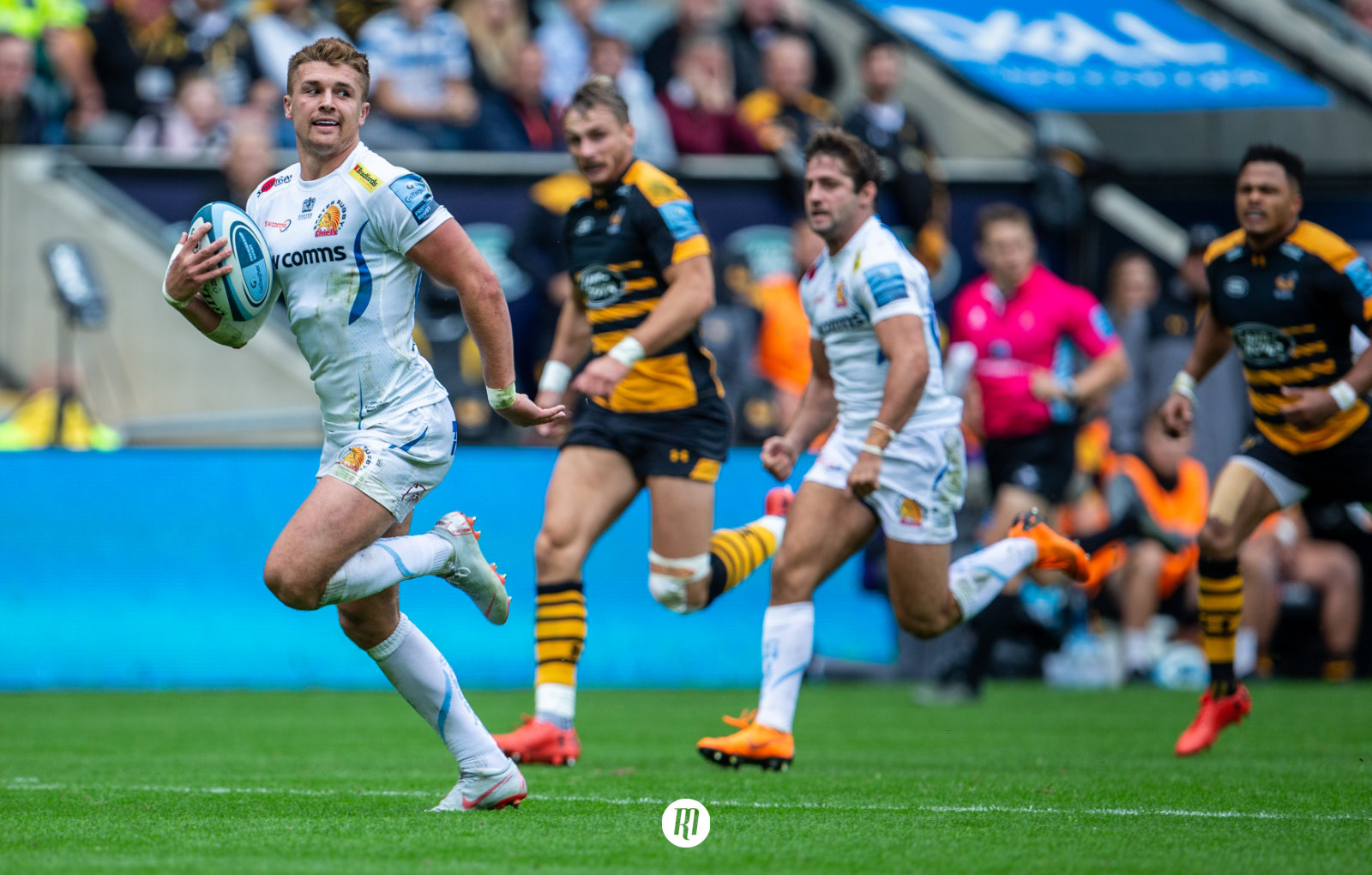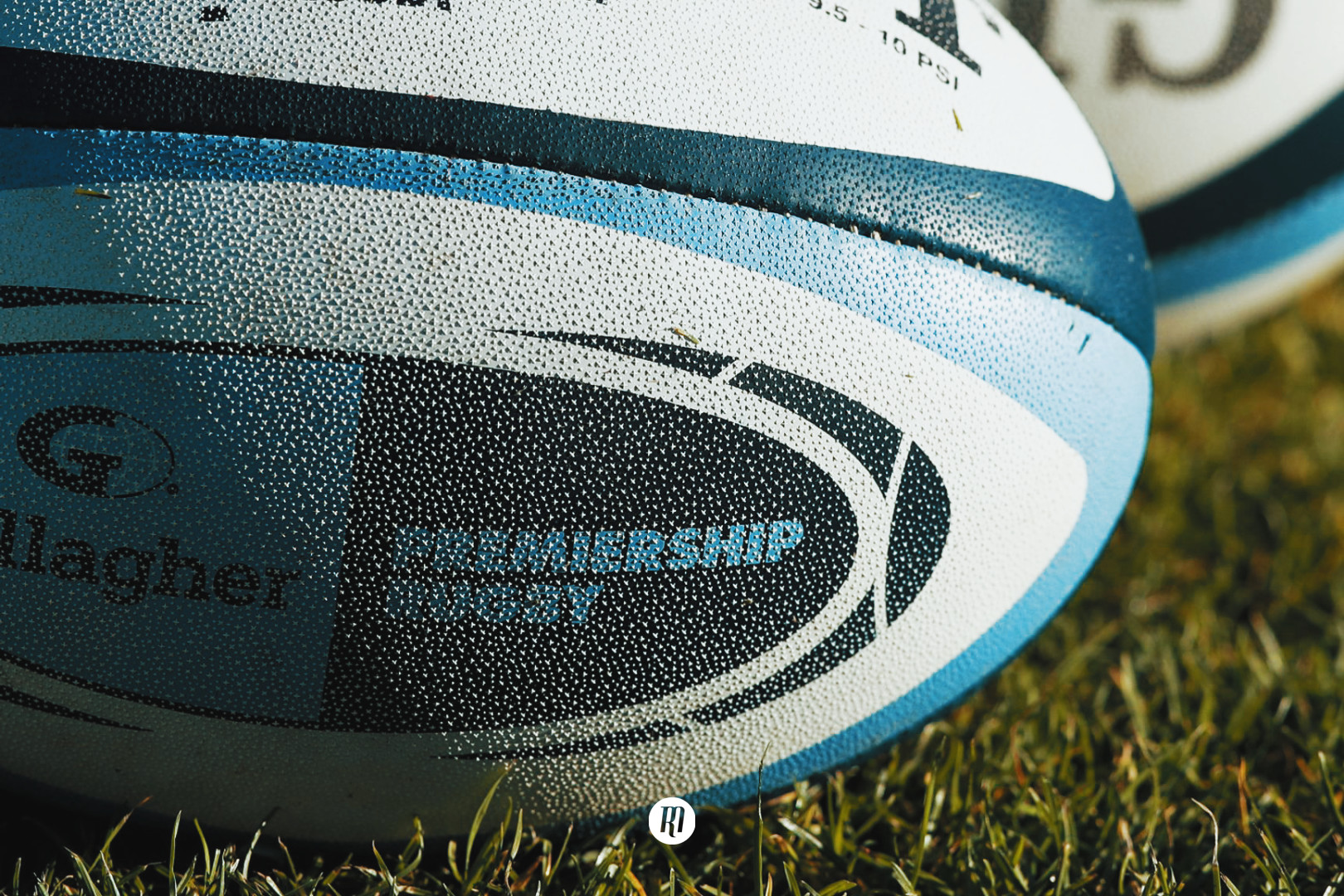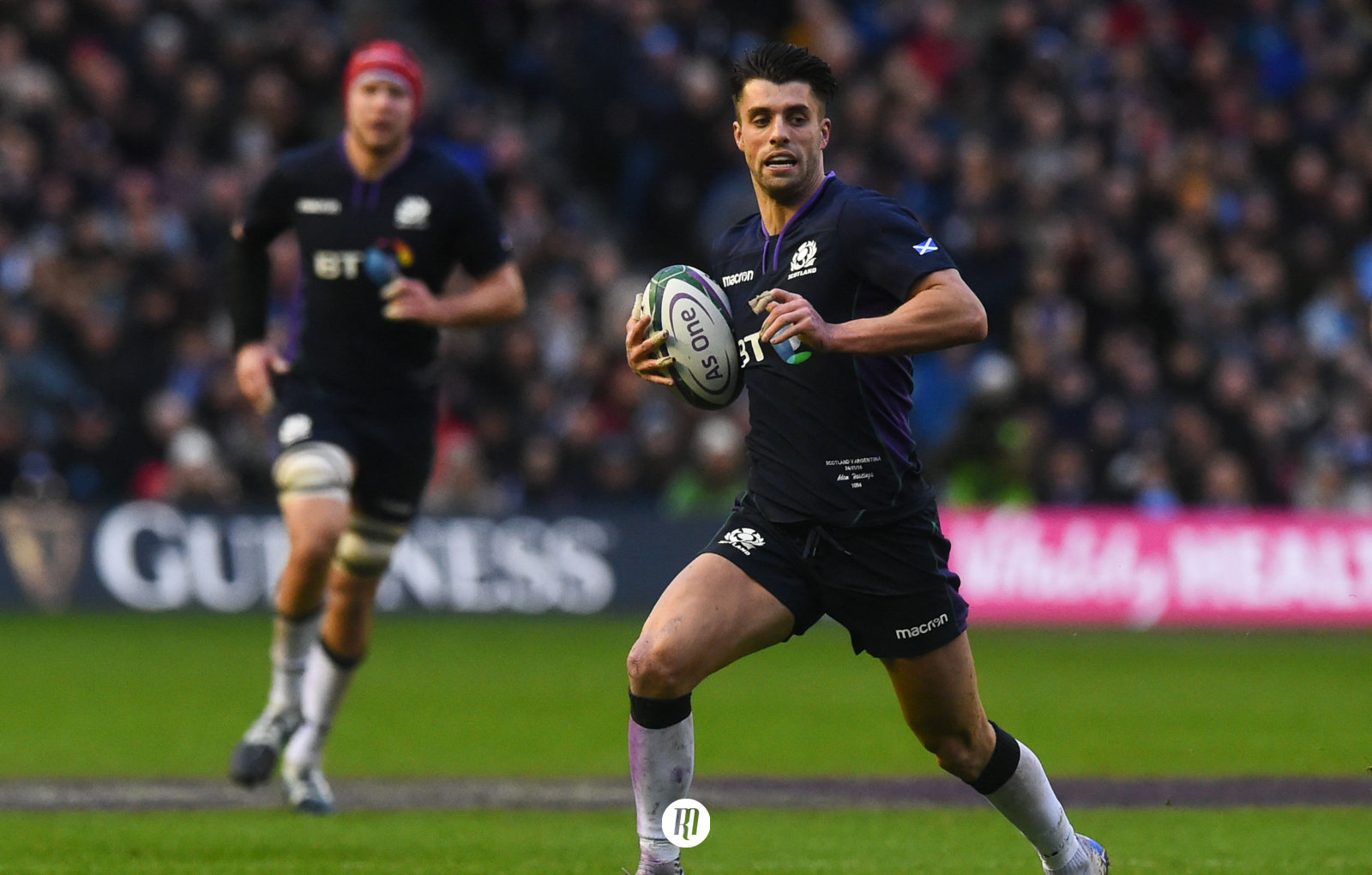Match Analysis: Wasps v Exeter
Exeter overcame Wasps in what played out as a classic top of the table clash at the Ricoh Arena, with tries aplenty for both sides.
Wasps and Exeter played out what will certainly become one of the matches of the season when we look back at its culmination, and while Exeter fans leave the Ricoh Arena as the happier set, the men in black will feel as if this is a game they let slip away.
As perennial contenders for the Premiership crown, both teams will have been excited at the prospect of making a mark so early in the season, and with Brad Shields down to make his first appearance for his new club, many were hard pressed to pick a winner from this fixture. As it played out, it was clear that each side had ascendancy in different areas, and that even as the game wore on, picking a winner would be difficult.
Exeter came into this game off the back a strong win in round one of the competition, though they would certainly be facing a stronger test with the ball in hand than they did against a remarkably lacklustre Leicester at Sandy Park. Indeed they would be facing a sterner test in defence too, with Wasps being one of the top attacking teams in the competition.
Tactical Battle
Once the match was underway, it was clear how each team was countering the strategy of the other; Wasps were working hard to disrupt the breakdown, before getting up quickly in defence; Exeter playing with a very deep backline, and a lot of width. The men from the south coast had clearly highlighted the wide areas as the place to attack, and with the physical battle in the middle of the field seemingly evenly matched, it gave Henry Slade and Santiago Cordero room to run into.
As the first half unfolded and the Wasps backline adapted to Exeter's attack, holes started to appear as they tried to stretch their defensive line to deal with the space out wide. The Exeter backs were then able to run on the outside shoulder of the slower forwards in the middle of the field; Henry Slade ghosted past Brad Shields for his first try.
Tempo
Exeter weren't without their own problems in defence however. One of the foremost traits of this Wasps side is their very high tempo attack, which keeps defences on the back foot, allowing them to play into a broken field; this tactic creates the spaces that keep players like Willie le Roux at the top of the assist charts. It also functions very well in disrupting a counter attacking side's defensive structure and minimising the impact of their transition phase.
Equally, they focused on moving the ball away from contact, an area in which Exeter were ruthlessly exposed by Saracens in the final last year. With Exeter's number stretched in defence, and their wide men pulling up into the defensive line, Billy Searle was able to pick out plenty of space in behind with a kick that bounced kindly into Josh Bassett's hands for their second try of the game.
While Wasps' attack is based on a high tempo, Exeter's game is based on an altogether slower tempo that utilises the strength and technique of their pack to drive them forward. Invariably, they win the game in the contact area, getting over the gain line and controlling possession up the field. This is evident their ability to convert possession in their opposition's 22 into tries, and so it was today.
Undoubtedly, one of the key focuses of Wasps' strategy going into the game would have been to minimise penalties in their own half. The last thing you want to do is give Exeter the opportunity to kick for touch, and pin you back inside your 22. Such is their confidence in coming away with seven points, they kicked for touch when they might otherwise have kicked for 3.
Twice Sam Simmonds crashed over the line from the back of Exeter's driving maul, a great boon to those fantasy coaches who had him as their captain.
Defining Moments
By the 48 mark, Exeter were leading by four points, the score 24-28. Cordero and Slade's tries had come from the wide attacking strategy of their backline, and complimented two tries from Sam Simmonds from the back of the maul. Wasps on the other hand, had three tries and a penalty; an early score from Elliot Daly who scythed through the Exeter defence on the 2 minute mark was joined by Josh Bassett's try, and a short Nathan Hughes effort after a prolonged attack.
At this point, it was clear that the next score would certainly have a big impact on the game, and indeed it was Wasps who appeared to be in the ascendancy. Had Billy Searle been able to thread his pass beyond Henry Slade who had rushed up into their attacking line, Wasps had plenty of numbers to play into a lot of space. As it was, an outstretched arm took control of the ball, and Slade paced 60 metres to crash over for a decisive try.
By the end of the game Exeter were the ones cheering. Another converted try apiece left the score at 31-42.
Exeter will be delighted that they have kicked off their campaign with two wins out of two. There are also plenty of positives for Wasps whose threat in attack seems un-dulled with the departure of Danny Cipriani, and while Lima Sopoaga had a quiet half an hour, more time in training with the team will only add to their incisiveness.

Filed under:
Gallagher Premiership, Match Analysis
Written by: Edward Kerr
Follow: @edwardrkerr · @therugbymag




